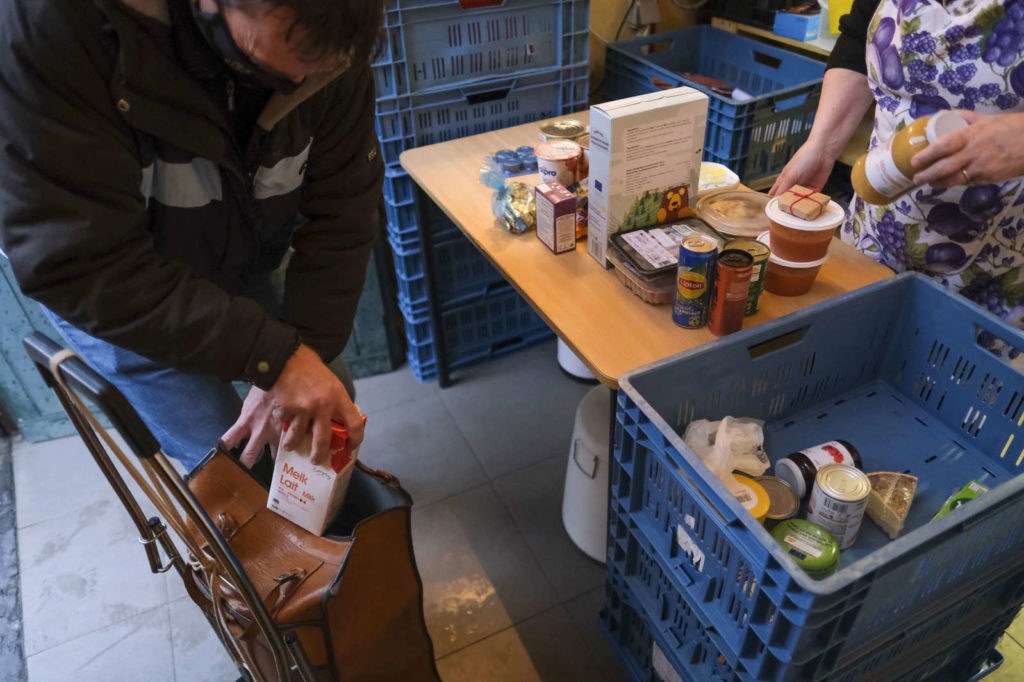A rising number of people living in Belgium are relying on food banks every month, and this rising trend is expected to continue due to the rise in energy prices.
In 2021, an average of 177,238 people turned to food banks every month, an increase of almost 2,000 beneficiaries per month. The number of people needing food aid especially increased towards the latter part of the year, the annual results of the Belgian Federation of Food Banks (BFVB) showed.
Food banks are expecting that a difficult period is to come in the spring as a result of the expected increase in food prices as well as a sharp rise in energy prices, which started in mid-2021. As a result, it is more than likely that a larger number of people will be forced to rely on food aid in 2022.
"The sharp increase in the price of energy, which for an average consumption can amount to €2,250 per year, or €187 per month, fuels fears that those in need will have to choose between food and heating," Piet Vanthemsche, President of the BFVB, said. "This is a choice no one should ever have to make, especially in a 'prosperous' country like Belgium."
Rise in demand, slump in supply
Whilst the need for food aid goes up, donations of surplus from the food industry decreased by 11% compared to 2020.
Food shortages and supply issues, as well as commercial initiatives to buy up food surpluses, could be the reason for this, the BFVB noted.
Meanwhile, donations from the European Fund for Aid to the Most Deprived Persons (FEAD) slumped by 20%. Due to additional purchasing budgets, enough food was purchased to meet demand, but without these purchases, there would be a structural shortage of food.
Related News
- 'Extra efforts needed': Belgium failing to achieve sustainable development goals
- Pandemic had more impact on well-being than financial crisis
As of 2024, the resources in the FEAD framework will decrease by approximately 30%, resulting in an annual reduction in the volume of European goods by an average of 2,100 tonnes compared to the last ten years.
"The loss of 2,100 tonnes or almost 10% of the total volume distributed compared to 2021 will undoubtedly make itself clearly felt, especially in view of the expected increasing demand for food aid."
Financial incentives to donate
Food banks are now calling on policymakers to implement more structural financial support by providing additional tax incentives, such as a tax credit on donated food, to support and encourage donations for food aid and to be able to respond to the expected sharp increase in the number of beneficiaries.
"In Belgium, companies that donate food products can recover the VAT (6%). Unfortunately, this measure does not seem to be a sufficient incentive to continue receiving the necessary food donations," Vanthemsche said.
"That is why we propose a scheme similar to the one in France. The retail value of the donated food can be deducted there, which is a pure tax reduction. The French formula also takes storage and transport costs into account."

